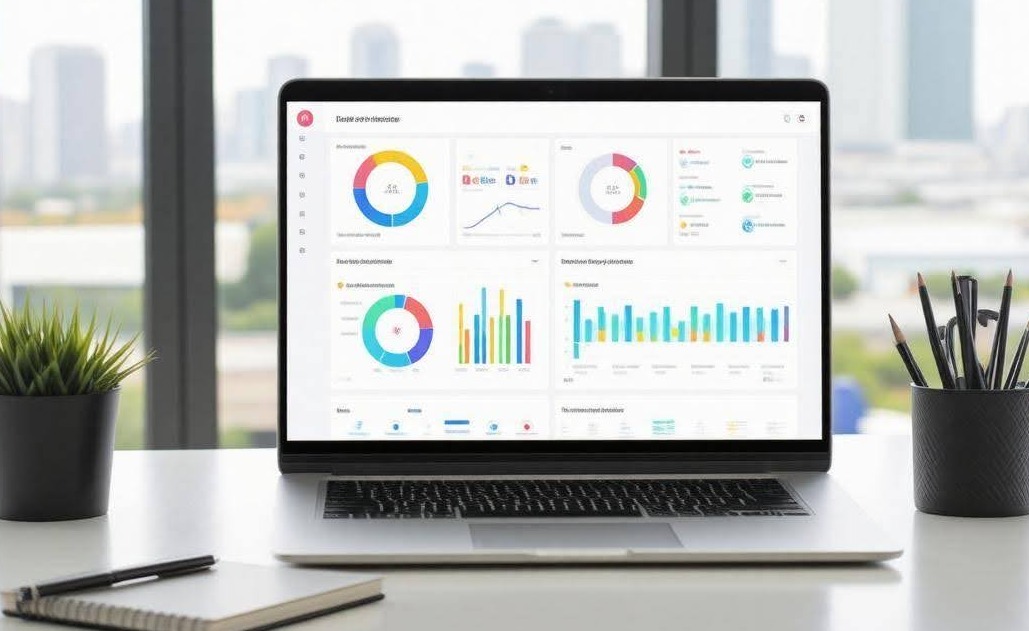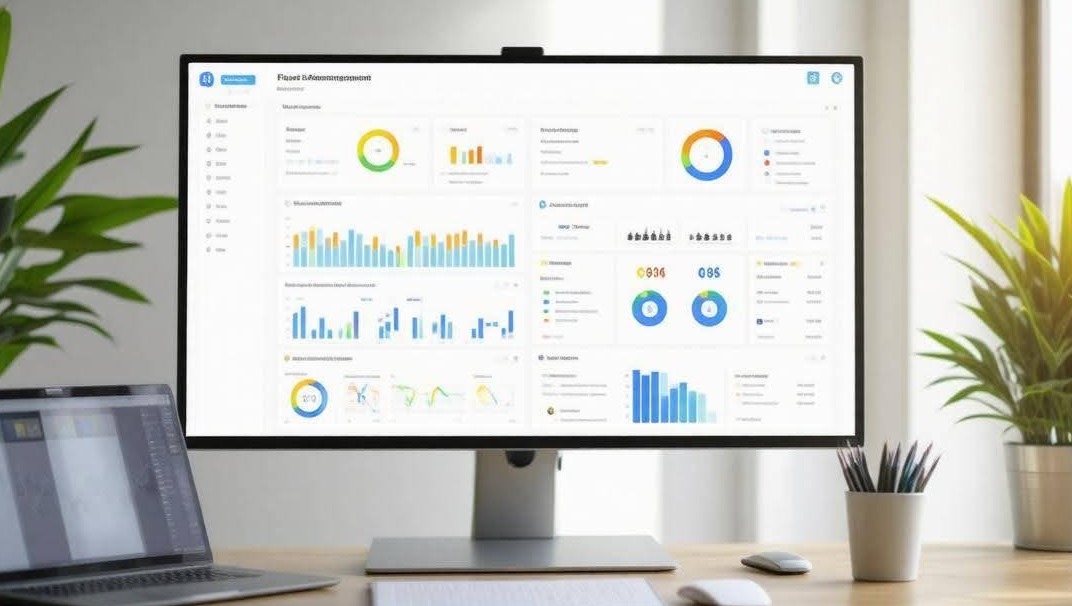
Data Collection and Analysis Tools
When selecting a fleet management solution, consider options like Samsara, which excel in gathering a variety of data types critical for operational success. Telemetrics data provides real-time insights into vehicle diagnostics, enabling immediate action to address any issues before they escalate. Additionally, driver data captures essential behaviors such as speed, braking, and acceleration patterns—information that can be used to enhance driver safety and efficiency. Integrating fleet card usage for purchases further complements these systems, adding another layer of control and transparency to overall business processes.Moreover, you shouldn't overlook fuel data, which tracks consumption rates and fuel efficiency; this knowledge could lead to significant savings over time. Understanding fuel data also offers the flexibility to adjust operations accordingly, ensuring resources are allocated efficiently.
Data Types and Their Uses
But remember, collecting these varied data types is just step one. What truly empowers fleet management professionals is how this data is interpreted. A software solution must present this information clearly and understandably. After all, raw numbers can be overwhelming! A fluid visualization format makes it easier for managers to digest key insights quickly. Notably, having flexibility in data representation can be as crucial as having it at a fuel station, where decisions need to be made efficiently, just like choosing the right credit card option.
For instance, Geotab stands out by offering sophisticated data visualization features that streamline complex datasets into actionable insights. Imagine staring at a wall of numbers versus viewing beautifully crafted graphs that pinpoint exactly where efficiency is lacking or costs could be trimmed. A well-designed dashboard, much like selecting the right fuel station for your vehicle needs, can shed light on capacity utilization, maintenance needs, or even driver behavior that might need improvement. This ability to sift through vast amounts of information at a glance effectively arms fleet managers with the knowledge needed to act decisively. It's as empowering as carrying a credit card with diverse benefits, giving you access to numerous possibilities.
Importance of Data Presentation
Beyond understanding the operation's pulse through data management, robust analytics tools bring cost efficiency—a significant advantage that can reshape budget management within fleet operations. Having flexibility in payment options, such as credit cards accepted at multiple locations, mirrors the adaptability needed in fleet management.
Cost efficiency is a significant selling point for many fleet management solutions, and rightly so. When it comes down to the bottom line, every dollar counts. This is where cutting-edge software becomes not just a luxury but a necessity for savvy fleet operators. By integrating efficient systems, you can harness various features that directly contribute to overall savings, enhancing both operational efficiency and productivity within your fleet. It's similar to choosing a credit card that offers cashback on fuel purchases—each aspect adds up to greater savings.
Enhancing Cost Efficiency
Implementing the right software can lead to substantial savings, often transforming how you manage expenses associated with vehicle operations. Just as having the right credit card can streamline personal expenses, the right software can optimize operational costs.
Cost-saving Features
One of the standout features is preventive maintenance. Automated alerts for vehicle servicing ensure that your vehicles are maintained before minor issues escalate into costly breakdowns. Consider this: one user from FleetWave reported a remarkable 20% reduction in maintenance costs due to timely alerts and reminders. This not only saves money but also keeps your fleet running smoothly, minimizing downtime. With such proactive strategies, fleets can maintain the protective shell of their vehicles, much like a well-maintained financial credit shell boosts personal credit standings.
Another crucial element is fuel management. With monitoring tools designed to track fuel usage intricately, companies can pinpoint wasteful practices and discover optimization opportunities. Imagine receiving regular insights about fuel consumption patterns that allow you to adjust routes or behavior—this can reduce unnecessary expenditures significantly. Many users have reported saving between 10-20% on fuel costs through improved route planning. It's akin to using a credit card wisely to maximize benefits.
Then there’s idle time reduction—a common culprit for draining resources. By tracking how long vehicles remain idle, fleets can implement strategies that encourage drivers to minimize unnecessary waiting periods. According to statistical analyses, fleets that actively work to reduce idle time see savings translate quickly into lower fuel bills. It's like optimizing credit usage—every bit contributes towards bigger savings.
"A little change in driver habits can lead to a significant drop in fuel expenses."
Furthermore, leveraging enhanced safety features has proven to yield another layer of cost efficiency—it can result in lower insurance premiums. This mirrors the advantage of having a good credit score, where the benefits compound over time.
Furthermore, leveraging enhanced safety features has proven to yield another layer of cost efficiency—it can result in lower insurance premiums. For instance, providers who utilize real-time data from advanced dashcams report experiencing fewer accidents, which translates into reduced risk profiles and subsequently lower premiums. This all adds up: businesses engaging in safer practices could enjoy *average cost savings of up to 15-30%* on their insurance policies.
As you explore the landscape of available options, keep these powerful cost-saving features in mind; they could be pivotal in shaping your operational efficiencies as you make future decisions.
